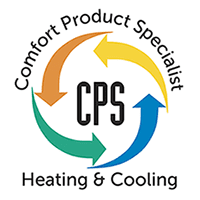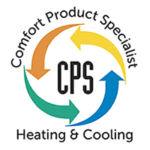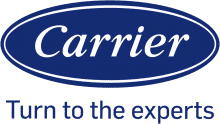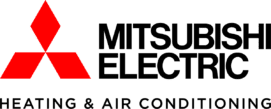 More people need to ask this question. As an HVAC contractor, husband, and father of four children, I take indoor air quality seriously. The health impacts of poor indoor air quality can be very harmful when they go untreated. Unfortunately, most people don’t have conversations about indoor air quality and good ventilation even when they’re suffering from tell-tale signs.
More people need to ask this question. As an HVAC contractor, husband, and father of four children, I take indoor air quality seriously. The health impacts of poor indoor air quality can be very harmful when they go untreated. Unfortunately, most people don’t have conversations about indoor air quality and good ventilation even when they’re suffering from tell-tale signs.
Americans spend an average of 87% of their lives indoors, according to the National Human Activity Pattern Survey (NHAPS) conducted by Environmental Protection Agency (EPA). So, it makes sense that the quality of our indoor environments greatly impacts our health.
To help you give your home or office a preliminary diagnosis, I put together an easy-to-use checklist for assessing the conditions of your indoor environment. The expert guidance in this article is meant to help you determine if you need to hire a professional HVAC technician.
YOUR HEALTH
Indoor air quality has been comprehensively studied by the National Institute for Occupational Safety and Health (NIOSH), which is part of the U.S. Centers for Disease Control and Prevention. NIOSH found concentrations of some pollutants can be up to 5 times higher indoors than typical concentrations of the same pollutants in outdoor environments.
A building is considered “sick” by NIOSH if 20% of the workforce presents any of these symptoms:
- Watering eyes
- Hoarseness
- Headaches
- Dry, itchy skin
- Dizziness
- Nausea
- Heart palpitations
- Miscarriages
- Shortness of breath
- Nosebleeds
- Chronic fatigue
- Mental fogginess
- Tremors
- Swelling of legs or ankles
- Cancer
SELF-HEALTH TIP: If you suffer from any of these sick-building symptoms, take notes on whether your symptoms ease or clear up when you leave the suspected building.
THE BUILDING’S HEALTH
Poor indoor environmental quality also presents itself in problem areas of a building, according to the SmarterHouse project by the American Council for an Energy-Efficient Economy. In New England, there are typically two types of building symptoms: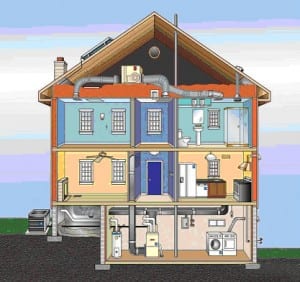
- Too much air flow—You can feel drafts indoors during winter, especially near windows, doors, HVAC vents, and exterior walls. Also, low humidity levels cause frequent static electricity discharges.
- Too little air flow—Odor is a great indicator. Is there a musty, mildew smell? Do common odors, like food or perfume, hang around a long time?
THE POLLUTANTS
What are we cleaning from the air? There are a lot of gases, particles, and organisms floating around in the air. Not all of them are toxic to us. However, when you want a sanctuary for your family, or a highly productive workspace for your employees, you want the highest quality air. Leading HVAC equipment manufacturers offer many different types of affordable filters that specifically fit their HVAC systems to clean pollutants caused by:
- Office equipment
- Cleaning products
- Carpets and furnishings
- Perfumes
- Fungus, mold, and bacteria
- Nature (pollen, insects, and rodents)
- Dampness
- Volatile organic compounds (VOC)

SELF-HEALTH TIP: When choosing the best air filter for your HVAC system, think about the needs of the indoor space and the people using it. The most important detail to remember about a filter is to change it regularly.
THE TREATMENT
There are best practices for indoor climate control, and by optimizing the temperature, humidity, and air flow of a building, you can eliminate some of the root causes of sick building syndrome.
First, you want to get a professional assessment of your home or building. The information above serves as good guidelines and red flags to look for, and if those major indicators are positive, it’s definitely time to examine the details of your approach to indoor climate control.
In Massachusetts, the MassSave collaborative of state natural gas and electric utilities and energy efficiency service providers will do an energy audit of your home.
A blower door test will determine the airtightness of your home. It’s quick and simple, and you may be surprised by the results—especially if you have a newer home.
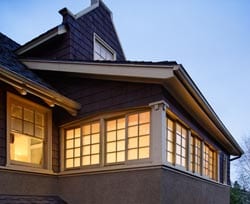 Today’s advanced construction materials and building technology has made newer homes too tight. For instance, foam insulation does a fantastic job of filling in all the cracks and crevices with watertight protection, however, there’s no space for the building to breath. This energy-efficient advancement in insulation makes it that much more important to have the best HVAC system for your home to regulate the air flow.
Today’s advanced construction materials and building technology has made newer homes too tight. For instance, foam insulation does a fantastic job of filling in all the cracks and crevices with watertight protection, however, there’s no space for the building to breath. This energy-efficient advancement in insulation makes it that much more important to have the best HVAC system for your home to regulate the air flow.
The energy audit also gives you an unbiased assessment of how your home can use less energy. The to-do list may include everything from replacing windows or installing a ductless mini-split to buying a new, ENERGY STAR furnace. After you know what you need, hire the best HVAC contractor near you who can offer the best price on heating and cooling equipment for your customized climate control system.
The quality of the air we breathe directly affects the quality of our lives, and the experienced and talented heating and cooling experts at CPS Heating & Cooling can ensure you feel good with every breath you take.
Phil
CPS Heating and Cooling
You can always call on your extended family of dependable heating, cooling, and air quality experts at CPS Heating & Cooling.
Contact us anytime to set up a consultation or call us at 508-460-6691.
